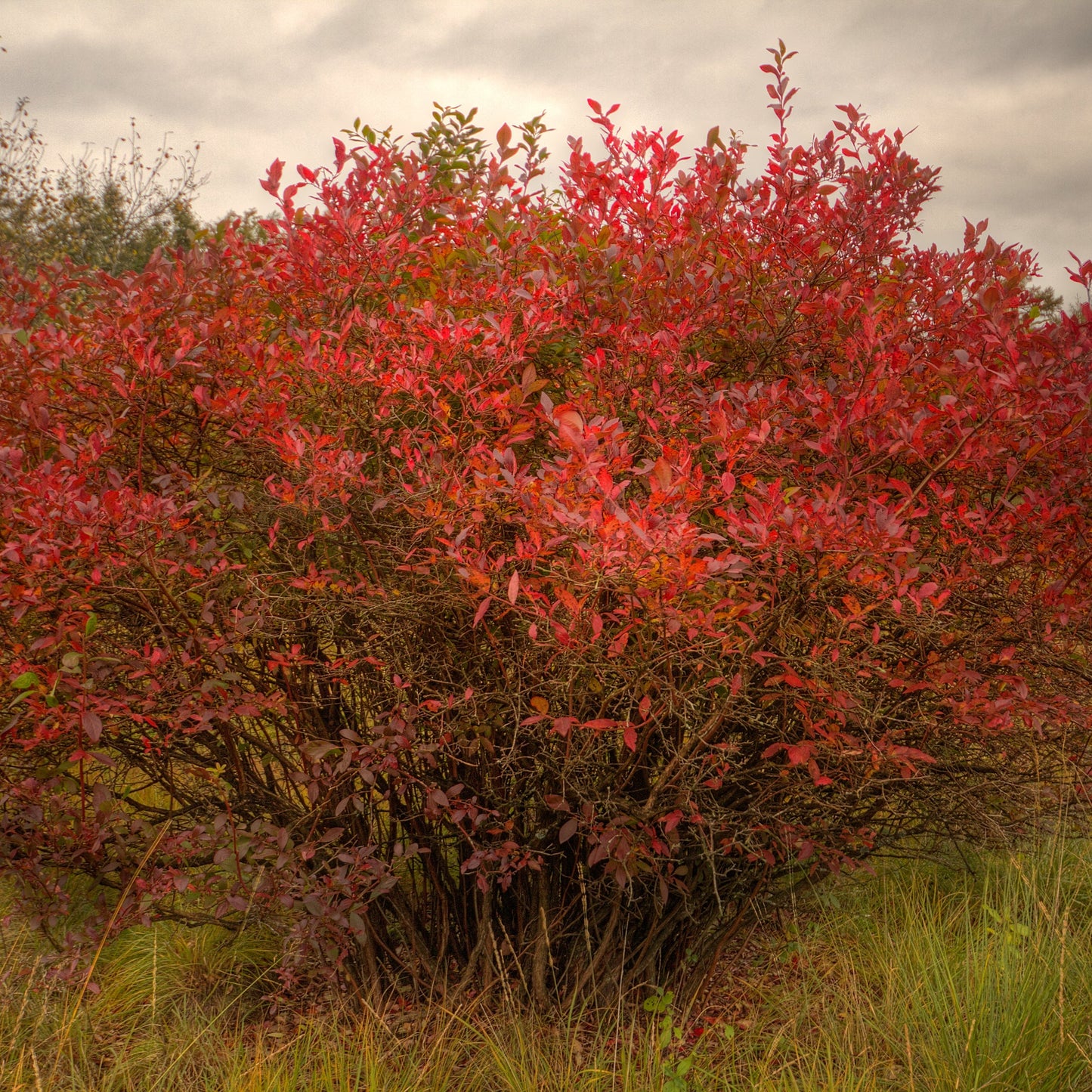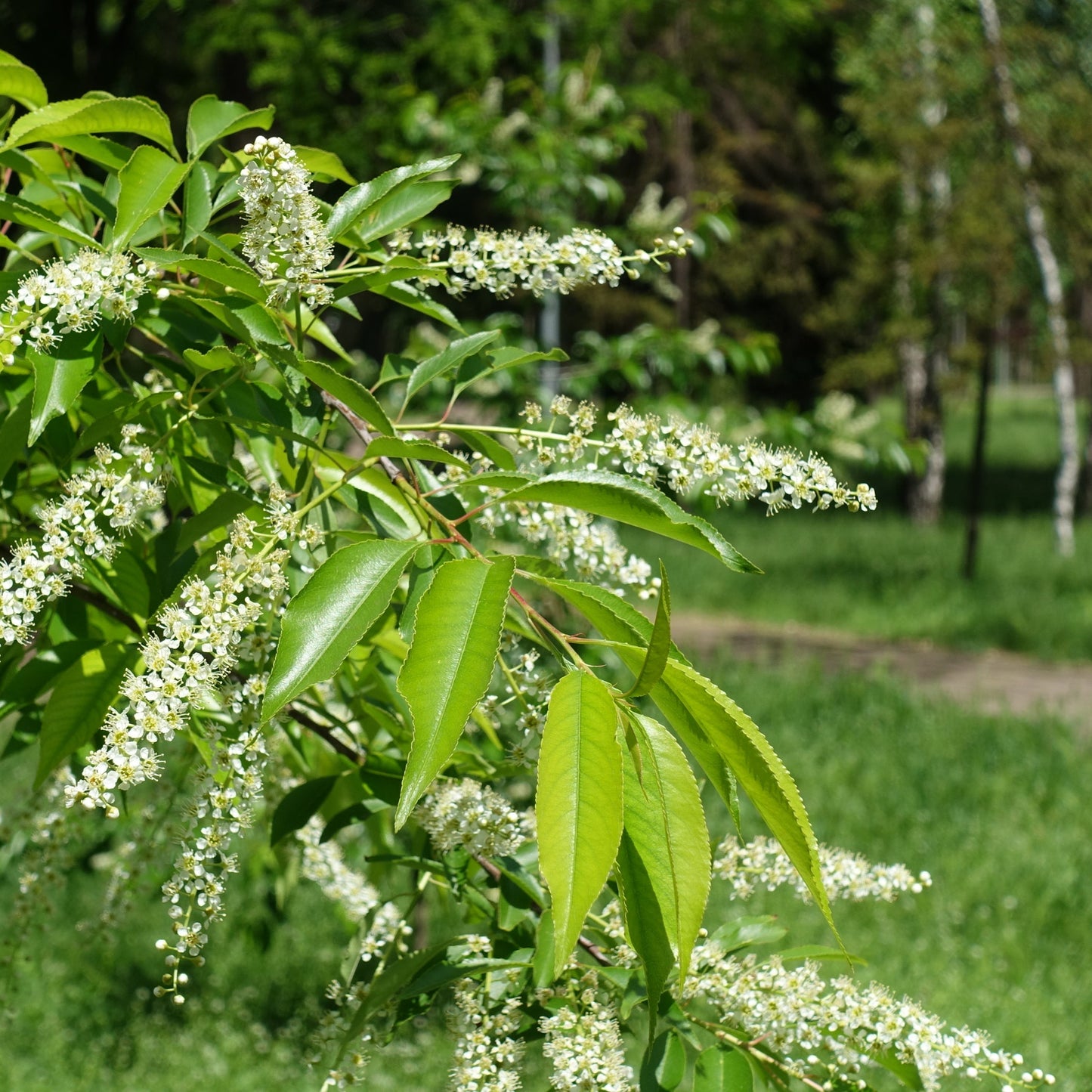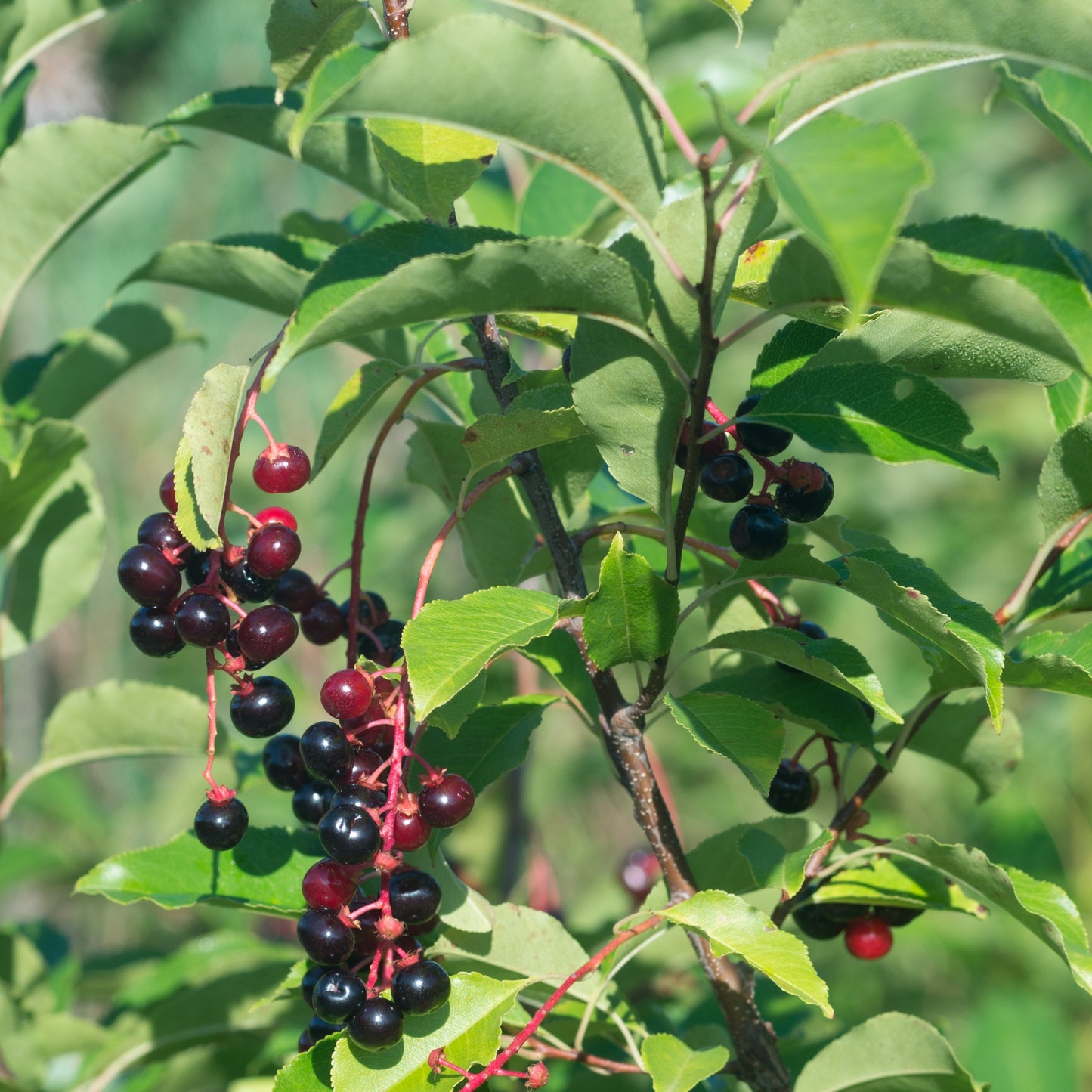Limited Quantities - Reserve Now For Fall
-
Beginner Zones 3-9
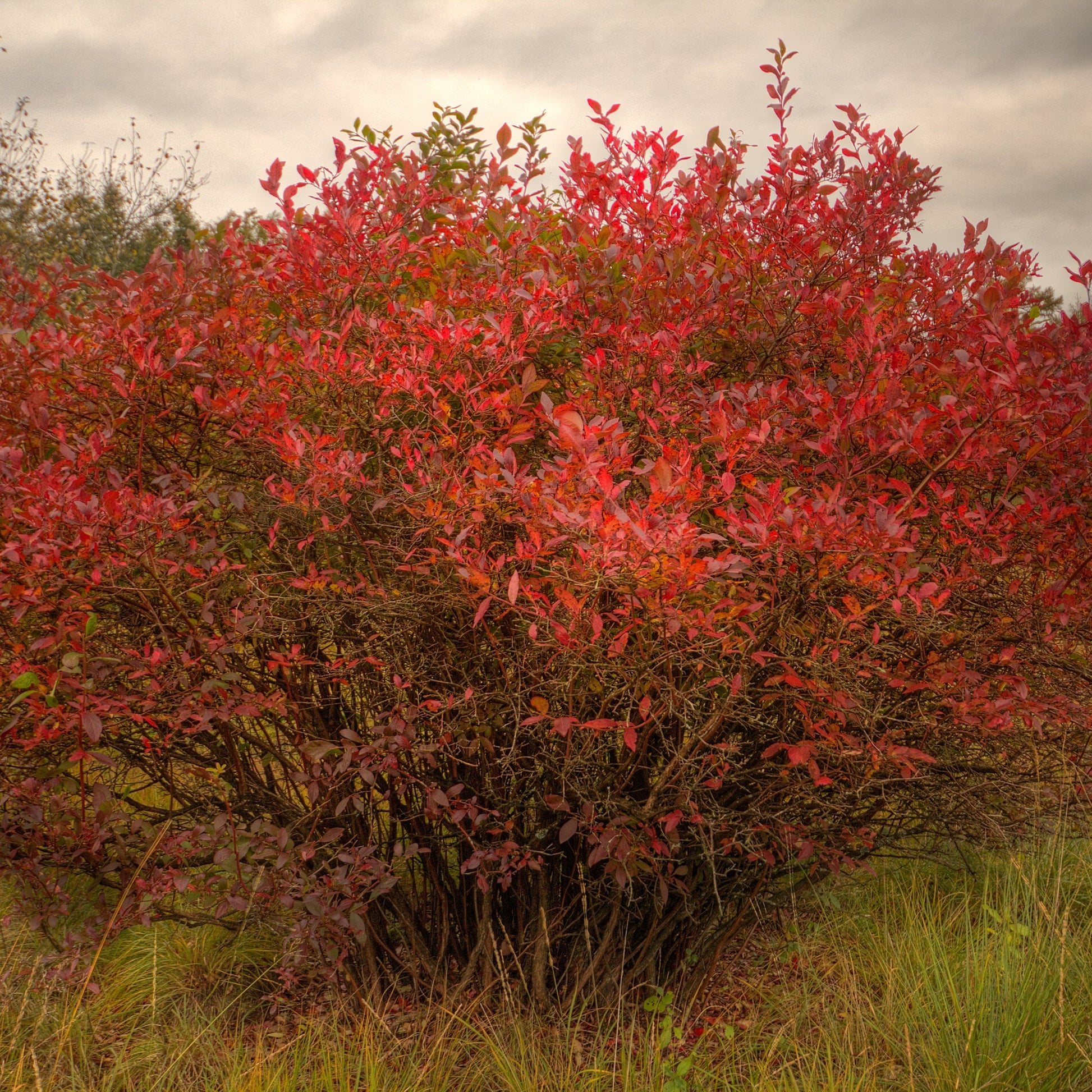
-
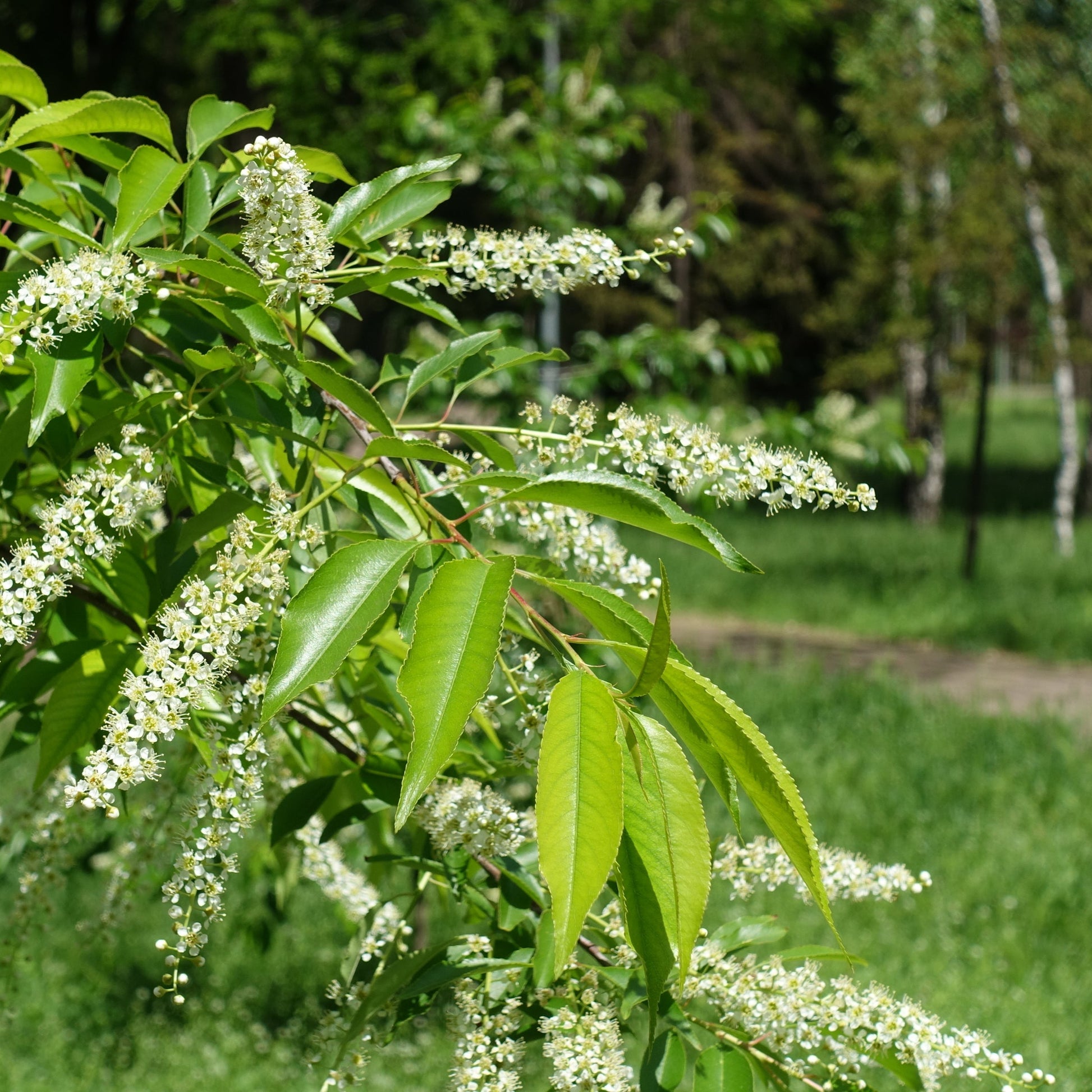
-
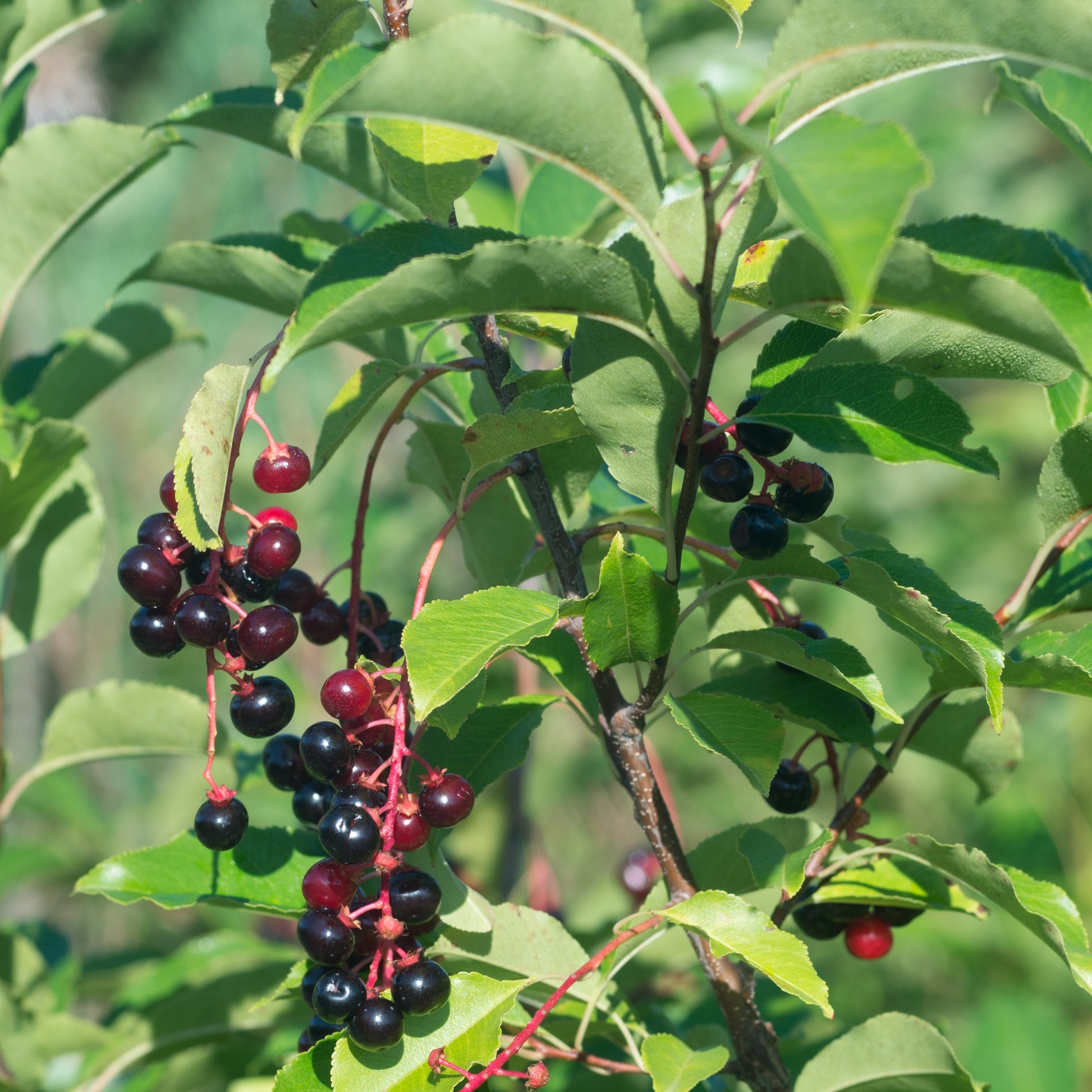
Black Cherry Tree
Black Cherry Tree
Couldn't load pickup availability
Prunus serotina
The Black Cherry Tree is a fast-growing, native deciduous tree prized for its fragrant white spring blossoms, valuable hardwood, and abundant dark cherries that attract wildlife. With its high adaptability, beautiful fall foliage, and ecological benefits, the Black Cherry is an ideal choice for reforestation, wildlife gardens, and ornamental landscaping.
Black Cherry Tree
| Attribute | Details |
|---|---|
| Variety | Rooted |
| Botanical Name | Prunus serotina |
| Common Names | Black Cherry, Wild Cherry, Rum Cherry |
| Mature Height | 50-80 feet |
| Mature Width | 30-50 feet |
| Growth Rate | Fast (2-4 feet per year) |
| Lifespan | 100+ years |
| USDA Hardiness Zones | 3-9 |
| Sun Preference | Full sun to partial shade |
| Soil Type | Well-drained, loamy, sandy, or slightly rocky soils |
| Soil pH | Slightly acidic to neutral (5.5-7.0) |
| Water Needs | Moderate; drought-tolerant once established |
| Flowering Season | Late spring (April-May) |
| Flower Color | White clusters (racemes) |
| Fruit | Small, dark purple-black cherries (August-September) |
| Fall Foliage | Yellow to orange-red |
| Wildlife Attraction | Birds, bees, butterflies, deer, small mammals |
| Growth Habit | Upright with an oval or pyramidal crown |
| Self-Pollinating? | Yes, but better fruit production with multiple trees |
| Landscape Uses | Wildlife gardens, shade tree, timber production, reforestation, ornamental tree |
| Maintenance Level | Low to moderate |
Environmental Benefits
🌱 Wildlife & Pollinator Support – Produces nectar-rich blossoms that attract bees and butterflies, while its fruit provides food for birds and mammals.
🌳 Reforestation & Erosion Control – Thrives in disturbed areas, making it a valuable tree for land restoration and soil stabilization.
💨 Air Purification & Carbon Sequestration – Absorbs carbon dioxide and pollutants, contributing to cleaner air and a healthier environment.
🍂 Multi-Season Beauty – Offers showy spring flowers, glossy green summer foliage, and striking fall colors, making it a visually appealing landscape tree.
Pros & Cons
| Pros | Cons |
|---|---|
| Fast-growing and provides excellent shade | Cherries can be messy if not harvested or eaten by wildlife |
| Attracts pollinators, songbirds, and wildlife | Some parts of the tree (leaves, bark, seeds) are toxic to livestock |
| Resistant to drought and urban conditions | Can be susceptible to black knot disease if not properly maintained |
| Valuable hardwood used for furniture and cabinetry | Not ideal for small yards due to its large size |
| Tolerates a wide range of soil conditions | Requires full sun for best growth and fruit production |
Planting & Care Guide
- Spacing: Plant 30-50 feet apart for proper canopy development
- Soaking: Soak bare root in water for 6-12 hours before planting
- Planting Depth: Dig a hole twice the width of the root system, ensuring roots are level with the soil surface
- Mulching: Apply a 2-3 inch layer of mulch to retain moisture and suppress weeds
- Pruning: Prune in late winter or early spring to shape the tree and remove diseased branches
- Fertilization: Use a balanced fertilizer in early spring to encourage healthy growth
- Watering: Water regularly until established, then reduce frequency as the tree matures
The Black Cherry Tree is a stunning, fast-growing, and wildlife-friendly tree that offers shade, seasonal beauty, and valuable hardwood. Whether planted for reforestation, wildlife support, or as an ornamental focal point, this resilient and low-maintenance tree is a long-lasting investment for any outdoor space.
Share
